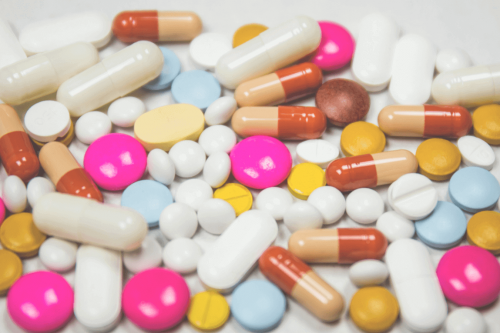Does Depression Cause Fatigue?

People with depression are more vulnerable to fatigue. Simple chores, like bathing and getting out of bed, may require more effort on their part. In addition, fatigue can play a role in other byproducts of depression, such as abstinence and apathy.
Depression definitely makes those who suffer from it feel more tired. Consequently, depressed patients might not want to do the things they used to. In fact, according to clinical psychologist Shoshana Bennett, “It’s unusual for fatigue not to be one of the symptoms of depression”.
Fatigue affects more than 90% of people with major depressive disorder. But what causes depression-related fatigue?
“Our fatigue is often caused not by work, but by worry, frustration, and resentment.”
-Dale Carnegie
Why does depression make us more susceptible to fatigue?
Statistics state that suffering from fatigue during depression deteriorates our quality of life. In addition, it also seems to be an important risk factor for relapse (Marin, H. and Menza, 2004).
The possible causes of fatigue during depression not only include sleep problems. Sometimes a patient’s diet, stress, and even some medications that they’re taking to treat their depression can cause it.
Below, we talk about the main reasons why people who are suffering from depression are more susceptible to fatigue.

Do you have trouble sleeping?
Sleep is essential for your health and it restores your energy. A lack of sleep on its own doesn’t cause depression. However, it does increase the risk of suffering from it. As a result, a lack of sleep or bad quality sleep may worsen existing symptoms. Another 2014 study by Soehner, A., Kaplan, K., Harvey A., and others supports this.
In this regard, many people with bipolar disorder and similar conditions experience insomnia and hypersomnia. Another sleep disorder linked to depression is obstructive sleep apnea. Likewise, depression may contribute to the severity of sleep apnea (Edwards et al. 2015).
Do you have bad eating habits?
There has been a lot of speculation whether our diet affects our mental health. A report (Soehner et al., 2014) supports this. Evidence links anti-inflammatory foods to a reduced risk of depression.
Another report (Li et al. 2017) focuses on Western-style diets. Red and processed meats, refined grains, sweets, and other unhealthy foods increase the risk of depression in some people.
Are you stressed?
Stress can affect our serotonin and dopamine levels. These chemicals play an essential role in our mood and energy.
A study by Slavich and Irwin (2014) focuses on stressful life events. Some examples of stressful events are the end of a relationship, death of a loved one, and health-related changes. This study suggests that these events can significantly increase a person’s risk of developing a major depressive disorder.
In addition, it suggests that stress can cause bodily inflammation. In turn, inflammation may cause hypersomnia and make us vulnerable to fatigue.
Do you take antidepressants?
Antidepressants act on neurotransmitters in the brain. Consequently, they regulate a person’s mood. However, some antidepressants can cause significant fatigue.
Targum and Fava (2011) support this idea. They reported that some medications used to treat major depressive disorders can cause fatigue as a side effect.

Fighting fatigue during your depression
First, you have to talk to your doctor. It’s important to rule out or diagnose other causes of this condition. Reviewing the medications you’re taking is equally important.
In addition, there are many things that can help you fight your depression-related fatigue:
- Exercise: Not only will it help you sleep better, but will favor the secretion of hormones and substances in your brain that promote a sense of well-being.
- Have a good sleep hygiene: Adopt a good sleep routine. Watch your food intake before bed and adhere to relaxation techniques.
- Improve your diet: Avoid foods with unhealthy fats such as fried foods, trans fats, and refined sugars. Eat more green vegetables, fatty fish, probiotics, and other healthy foods.
- Practice mindfulness: This type of meditation may help improve your mood and fight stress.
Just because we’re more predisposed to fatigue when we’re depressed doesn’t mean that we have to accept it with our arms crossed. Thus, being proactive and adapting the right mindset may improve our situation and symptoms.
This text is provided for informational purposes only and does not replace consultation with a professional. If in doubt, consult your specialist.








